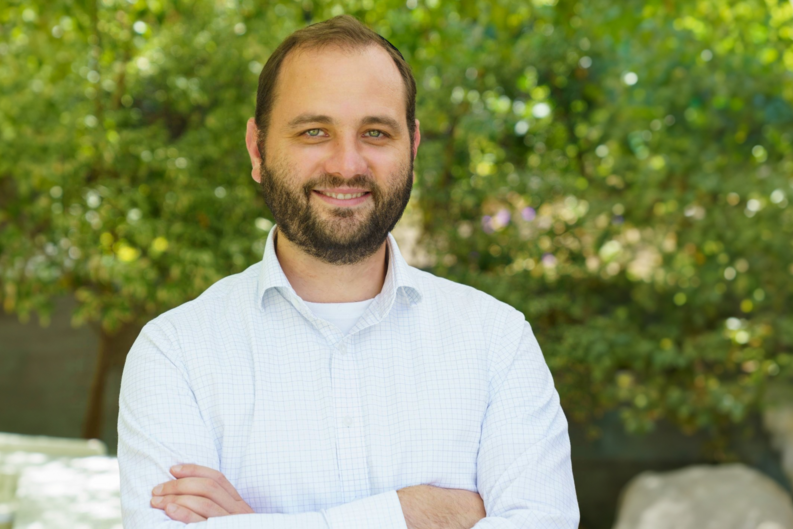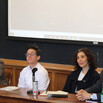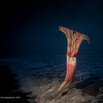Q&A: Michael Helfand ’07 on the Work of the Free Exercise Clinic

The Free Exercise Clinic gives students an opportunity to defend the free exercise of religion by politically vulnerable religious minorities. Founded by Lafayette S. Foster Professor of Law Kate Stith in 2019, the clinic allows students to work alongside experienced litigators. Since first offered as a course in 2020, the clinic has co-authored or filed 18 friend-of-the-court briefs in a variety of cases across the country including before the Supreme Court. The clinic also hosts a speaker series featuring scholars presenting new research papers addressing the legal theory and legal doctrine of religious liberty.
Michael Helfand ’07 has been one of the clinic’s instructors from the beginning, currently serving as the Florence Rogatz Visiting Professor of Law. When not at Yale, he is at Pepperdine Caruso School of Law, where he is the Brenden Mann Foundation Chair in Law and Religion and Professor at Law and Co-Director of the Nootbaar Institute on Law, Religion and Ethics.
Religious freedom has been a key principle of the U.S. since its earliest days: the Constitution and many other laws protect people’s right to freely practice their religion. Why is it important for law students to learn about these issues now?
Student interest in the religion clauses — that is, both the free exercise and establishment clauses of the First Amendment — may be at an all-time high. This is far from surprising. First, the Supreme Court has issued numerous landmark decisions in recent years, transforming the doctrine in ways that significantly impact the scope of constitutional rights. Second, questions at the intersection of law and religion are often personal to law students; they touch upon a range of deep commitments and the relationship of those commitments to the demands of the law. And third, the often-dueling commitments of free exercise and establishment present a series of complex doctrinal puzzles for students, engaging deep questions of constitutional methodology that have impact not only on the religion clauses, but many other constitutional doctrines as well.
Last year, the Supreme Court cited a brief the clinic filed on behalf of a coalition of religious minorities in Groff v. DeJoy. The court ruled that employers should accommodate requests for religious accommodation unless doing so would cause “substantial” increased costs to the business. How did the brief appear to add to the court’s understanding of the case? How did Yale Law School students contribute to the brief?
The Free Exercise Clinic’s amicus brief in Groff v. DeJoy really exemplifies so much of what the clinic is all about. Three students in the clinic (Andrew Follett ’23, Denise Jimenez ’25, and Isaac May ’24) worked alongside attorneys from Sidley Austin as well as Professors Kate Stith and Nicholas Reaves to represent a range of minority religious communities — both Seventh-Day Adventists and Orthodox Jews — for whom religious accommodations in the workplace have long been a struggle, in part because of their religious commitment to a Saturday Sabbath. The brief highlighted these challenges, focusing on the ways in which the existing legal standard had disproportionately impacted minority faith communities.
And these arguments clearly resonated with the justices. Justice Alito, for example, actually held up a number of amicus briefs during oral argument, noting that he was “really struck” by the “many amicus briefs” filed by “many minority religions” that emphasized how the existing legal standard “violated their right to religious liberty.” In fact, the Supreme Court cited the clinic’s amicus brief in its opinion, one of a number of such briefs that led the Court to conclude that the existing legal standard interpreting Title VII of the 1964 Civil Rights Act (which prohibits — among other things — religious discrimination in the workplace) simply had not done an adequate job in protecting minority faiths when they entered the job market. When you put this all together, the clinic’s brief in Groff gave voice to the marginalized practices of minority faith communities — communities who not only deserve to have their voices heard, but also deserve to have the law take their interests into account when addressing difficult questions of legal doctrine and public policy.
The Free Exercise Speakers Series brings together students and faculty from Yale Law School’s Free Exercise Clinic with similar clinics from six other law schools. How does collaborating with other law schools expand opportunities to explore the topic of religious liberty and the law?
The Free Exercise Speaker Series is one of my favorite innovations of the clinic. Students in free exercise and religious liberty clinics across the country typically devote many hours — and sometimes many semesters — to exploring challenging and urgent questions at the intersection of church and state. The speaker series provides them all with an opportunity to dive deeper — beyond the legal doctrine — by engaging cutting-edge papers and research authored by some of the very best academics in the field. The papers are, by and large, works in progress that are presented to the students. The Q&A sessions that follow are often quite spirited with students from across the country pressing speakers on their arguments.
The learning environment, incorporating Yale Law School students and six other religious liberty clinics, creates a culture for religious liberty clinics — one dedicated to academic inquiry as well as both methodological and ideological diversity. Speakers regularly remark that the questions they get from this group are some of the best and it’s no surprise given how the culture has shaped our conversations.
You posted recently about your excitement for returning to Yale Law School, where you have taught as a visiting professor for the last several spring terms. What do you most enjoy about being back?
Yale Law School is a special place with extraordinary students. And that allows me to build curricula for the courses I teach that are incredibly demanding. We don’t excerpt cases or focus on the mere highlights of the doctrine. The readings and the conversations require students to develop a textured sense of how, blow by blow, legal doctrine has evolved over time — and then to consider what that evolution means both for how they represent clients in the clinic and how they evaluate the success of different doctrinal methodologies.
Maybe more than anything, I find when students throw themselves into the doctrine, it allows them to hold their ideological commitments more loosely, opening them up to new possibilities as to how they want to think about the law of church and state. And I get to do all this while working alongside people I so deeply admire: Professor Kate Stith, the courageous founder of the Free Exercise Clinic and Nicholas Reaves, whose supervision of our students’ clinical work ensures that they emerge from the experience as first-rate lawyers.


